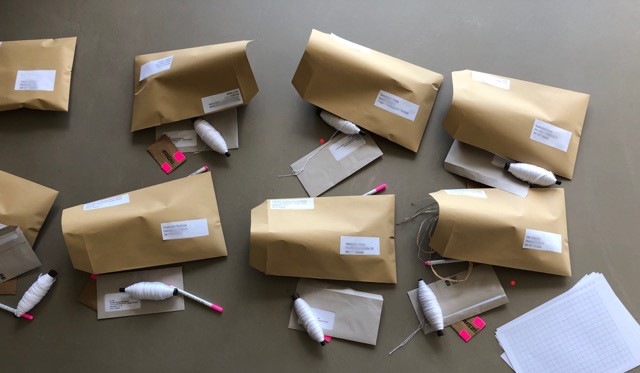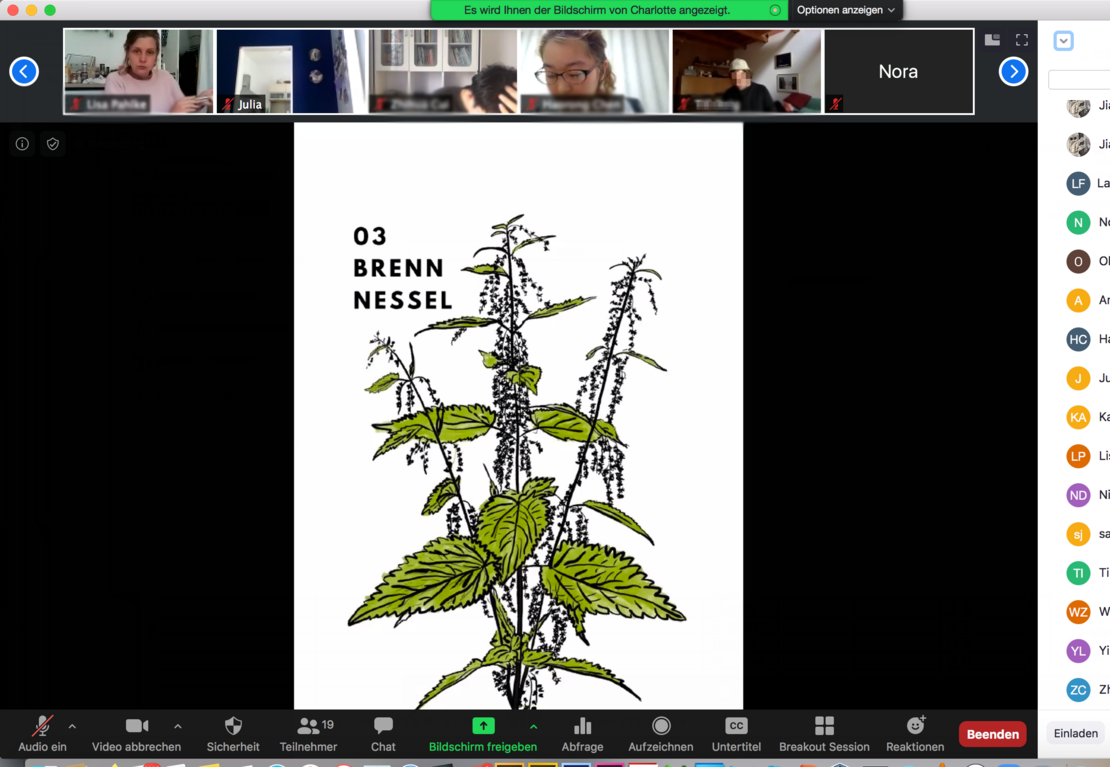This page contains automatically translated content.
Textile workshop by mail
 Image: Nadja Porsch.
Image: Nadja Porsch. Image: Nadja Porsch.
Image: Nadja Porsch.In this semester, which takes place under Corona condition so different than expected, there are five courses of the Textilwerksatt. Among them is a cooperation weaving course with a lecturer from landscape aesthetics in design, Dipl.-Ing.Christine Baumgartner. "Grown in Germany" is the name of the event, in which the ASL department and students from the School of Art work together - with materials that grow, accrue and can be processed in Germany. "We hear presentations on hemp, nettle, bioplastics, mushroom leather, milk protein fiber," reports Nadja Porsch, who currently heads the textile workshop. "We've had a speaker from Berlin with us via Zoom who has presented materials she developed herself, and we're learning to weave the basic fabric weaves - looking for new uses in architecture and landscape architecture."
But how can students practice this in a semester that is almost entirely digital? "I make do with self-made explanatory videos and offer supervised weaving over and above the theory input every Thursday in one-on-one video conferences or small groups," Porsch says. "But with all the digital teaching, I want the students to have something analog, a haptic task." The solution: she sends all the students small packages with fabrics, tools, materials, self-construction instructions-all the way to China, from where some students attend the courses. "And then we do video lessons."
Based on her initial experience, that's going surprisingly well. While this is not a permanent substitute for an equipped workshop and the personal eye of the instructor, the workshop leader says, "In particular, there is a lack of opportunity to intervene personally, for example, if I notice that someone's hand-head coordination is not yet right." On the other hand, she says, participants are now more flexible. "For me personally, it's great that some students have returned to China and can still participate in the events."
Porsch sends a big thank you to many helpers at the university and the School of Art: from secretaries to staff in the human resources department, professors to the staff at the mailroom on Mönchebergstraße who organized the mailing.
The semester will remain digital for the foreseeable future, even if there are relaxations for the workshops. "Currently, the art school's workshops are in the cautious process of opening up, and I'm fluttering off, posting, creating lists and seating arrangements for a few students who want to work on projects or theses there for the time being," Porsch reports.